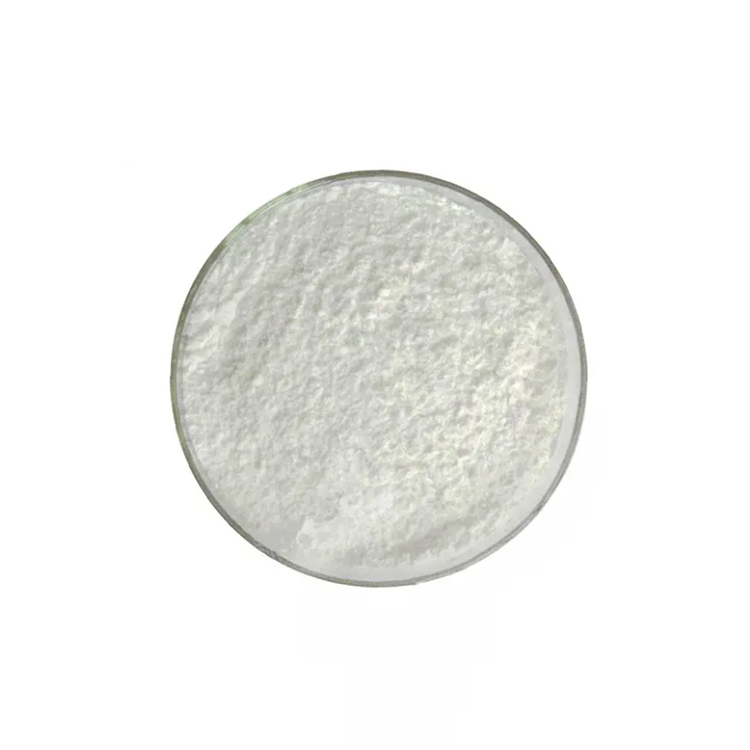-
Categories
-
Pharmaceutical Intermediates
-
Active Pharmaceutical Ingredients
-
Food Additives
- Industrial Coatings
- Agrochemicals
- Dyes and Pigments
- Surfactant
- Flavors and Fragrances
- Chemical Reagents
- Catalyst and Auxiliary
- Natural Products
- Inorganic Chemistry
-
Organic Chemistry
-
Biochemical Engineering
- Analytical Chemistry
- Cosmetic Ingredient
-
Pharmaceutical Intermediates
Promotion
ECHEMI Mall
Wholesale
Weekly Price
Exhibition
News
-
Trade Service
original title: European College of Cardiology Authority: Your lifestyle, nutritional structure, is the first factor affecting cardiovascular health!2019, the European Society of Cardiology (ESC) has introduced a new guideline scan on chronic coronary syndrome (CCS), highlighting for the first time the adverse effects of environmental pollution, including noise pollution, on the disease, and making it clear at the 2019 ESC conference that most early-morning heart disease stalks are associated with lifestyle (smoking and alcoholism, exercise and diet) rather than genetic factors.for example,
has been a commonly accepted view for a long time, "proper drinking is good for health". Because it was found in earlier clinical studies that the relationship between alcohol consumption and cardiovascular accident risk was a U-curve, i.e. the lowest risk of cardiovascular accidents with 2-3 glasses of alcohol per day.the latest: Alcohol can be touched without touching but a prospective study published in April 2019 in the journal The Lancet showed a fully positive correlation between alcohol intake and stroke risk;alcohol intake was not statistically significant, but there was a positive correlation.and, based on meta-analysis of large samples, we have found a growing and long-neglected link between cardiovascular disease.For example, in 2018, a paper published in the New England Journal of Medicine noted that influenza is also associated with heart attack.
the authors also pointed out that there is a high correlation between disease and the environment, society, genetics, infectious diseases, lifestyle and diet. , the significance of proper exercise, balanced diet, regular check-ups and regular treatment for cardiovascular health is self-evident.
but beyond that, we can actually do more.the important role of nutrients a growing number of studies are using big data to paint an indisputable truth - that dietary supplements do have a preventive and complementary therapeutic effect on a wide range of diseases, and that even many types of supplements appear directly in the guidelines for many diseases.for example, humans have long found that intake of lycopene reduces the risk of prostate cancer, the latest meta-analysis has even found that for every 2 mg of intake of lycopene, the risk of prostate cancer is reduced by 1% dose-effect correlation;a consumer survey from PackagedFacts classifies functional food consumers among the average adult, health-improving, weight manager, and medical target.listed the top 12 functional claims for these four groups, with the top five being high cholesterol, weight control, high blood pressure, weight management and digestive health. This is a feature that all four groups of people focus on, with more than 20% of the attention.of these five claims, four are directly related to cardiovascular health, which is a direct concern of different functional food consumers to the importance of the field., according to a broader market survey, such as the NHANES (National Health and Nutrition Survey) of the National Centers for Disease Control and Prevention (CDC), about 50 percent of adults in the U.S. regularly take dietary supplements, and that dietary supplements should be about 66 percent, or two-thirds of the population, if seasonal and interstitial users are taken into account.so the health significance of functional foods (such as nutritional supplements) has not only been recognized by the authoritative society's guidelines, but also recognized by the market and consumers., what dietary nutrients are good for cardiovascular health? Here is a brief introduction to several
more recognized and documented dietary nutritional supplements:No.1Coenzyme Q 10this is a pangenyl, with good antioxidant effect, can protect the lipids of the cell membrane from peroxidation damage, so as to have a good protective effect on the heart muscle, skin., many patients with cardiovascular disease combine hyperlipidemia to take statincholesterol-lowering drugs for a long time. One of the side effects of statins, however, is soreness and weakness in the muscles of the whole body.therefore, many patients take the drug compliance is relatively poor, take the drug irregular or even refuse to take the medicine. And supplementing with coenzyme Q10 is a good way to relieve these muscle symptoms.. No.2light-luminescinEnglish language called water-soluble tomato extract, or water-soluble tomato extract. This is the first natural heart protection functional ingredient approved by the European Food Safety Authority.this is a crude extract, which contains a variety of active ingredients, their different roles are mainly reflected in anti-platelet aggregation, inhibition of angiotensin conversion enzyme activity and certain anti-inflammatory reaction function.study of human volunteers has demonstrated the efficacy and bioavailability of active compounds in light luclide. As a result, it became the first product in Europe to receive a proprietary health declaration of the European Health Declaration Regulation 1924/2006 Article 13 (5) on the Food Nutrition and Health Statement.. No.3lycopenewhich is also a substance with a strong antioxidant capacity.but recent studies have also found a certain anti-inflammatory effect, with some scholars finding a link between lycopene intake and reduced incidence of coronary heart disease, which some preliminary studies suggest may have been achieved by reducing oxidative stress and removing inflammatory markers.. No.4fish oil (omega-3 unsaturated fatty acids)is also a more antioxidant-resistant substance. but recent studies have also found a certain anti-inflammatory effect, and some scholars have found a link between lycopene intake and reduced incidence of coronary heart disease, which some preliminary studies suggest may have been achieved by reducing oxidative stress and removing inflammatory markers. the main function of fish oil is to reduce cholesterol levels in the blood, so its preventive effect on cardiovascular disease has long been paid attention to by the academic community. the American Heart Association (AHA) published a paper in the authoritative journal Circulation, noting that for those at high risk, coronary heart disease can be prevented by taking fish oil (omega-3 fatty acid) supplements. current lying both domestic and international expert consensus, fish oil, as a dietary nutritional supplement, is an option to prevent cardiovascular disease. dietary nutritional supplements important human understanding of the disease is changing in line with advances in technology, new clinical research results and new drug/active ingredient identification techniques are constantly updating and even subverting our traditional perceptions. we don't know enough about the health implications of dietary nutritional supplements and believe that their impact on disease development is not as important as genetic factors.
but many new clinical studies, including the ESC CCS guidelines for 2019, have forced people to revisit the issue. especially for our country, cardiovascular health is the number one problem that has to be faced. The China Cardiovascular Disease Report (2018), released by the National Cardiovascular Disease Center of the , shows that the prevalence and mortality rate of cardiovascular diseasein in China are still on the rise. It is estimated that the number of cardiovascular diseases in China is as high as 290 million. Cardiovascular disease mortality rate also ranks first, accounting for more than 40% of the population's disease deaths. According to the National Cardiovascular Alliance and other leading release of the first "China's youth and youth cardiovascular health white paper" data show that the 20-29-year-old cardiovascular disease risk group has reached 15.3 percent. in the face of the increasingly young trend of cardiovascular disease, I also know as a doctor, "the disease from the shallow treatment", "prevention is more important than treatment" the importance, therefore, in the daily also activeresponse, focus on prevention.
. Responsibility Editor:
.







